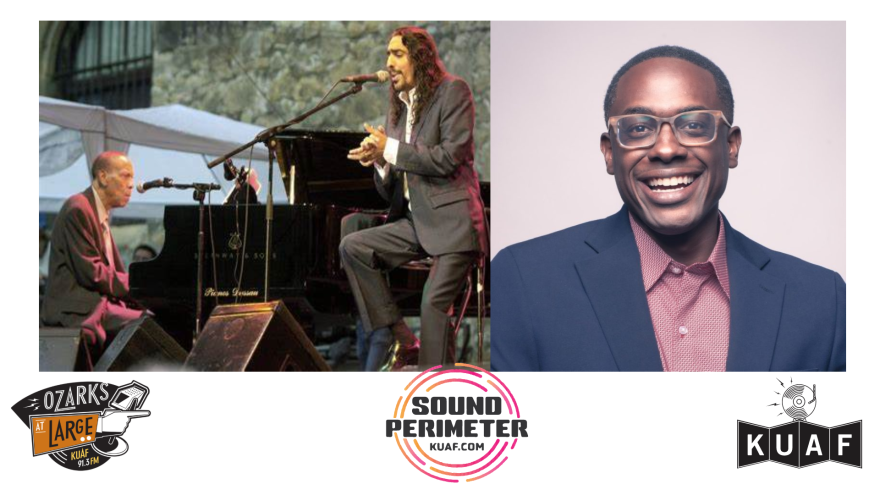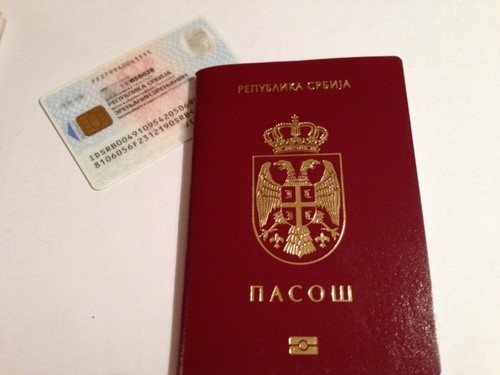Defining The Sound Perimeter: Music And Collective Identity

Table of Contents
Music as a Marker of Cultural Identity
Music acts as a powerful marker of cultural identity, transmitting values, history, and beliefs across generations. Understanding this connection between music and collective identity is crucial to understanding cultural preservation and evolution.
Shared Musical Traditions
Traditional music forms, passed down through oral traditions and cultural practices, play a vital role in maintaining cultural identity. These forms often encapsulate a community's history, beliefs, and social structures.
-
Examples: Flamenco in Spain, with its passionate vocals and intricate guitar work, embodies the spirit of Andalusian culture. Bluegrass music in the United States reflects the Appalachian region's history and social values through its distinctive instrumentation and storytelling lyrics. Similarly, Aboriginal Australian didgeridoo music connects individuals with their ancestral lands and spiritual beliefs.
-
Details: The transmission of these traditions often relies on apprenticeship, family gatherings, and community events. Modernization presents challenges, as younger generations may be less inclined to participate in these traditional practices. However, efforts to revitalize and preserve these musical traditions are crucial for maintaining cultural heritage and a sense of collective identity.
Musical Styles and Subcultures
Modern musical genres and subcultures often foster strong senses of belonging and shared identity among their followers. The relationship between music and collective identity in these contexts is particularly dynamic.
-
Examples: Punk rock, with its rebellious spirit and DIY ethos, created a powerful subculture with a strong sense of collective identity. Similarly, hip-hop, born in the streets, has evolved into a global phenomenon, defining numerous subcultures and identities. K-pop's vibrant choreography and meticulously crafted music videos have captivated a vast global fanbase, forging a distinct online and offline community.
-
Details: These subcultures often develop their own unique styles, language, and social norms, with music playing a central role in reinforcing these aspects of their identity. The social and political implications of these subcultures are significant, with music frequently used as a means of expressing dissent, promoting social change, or challenging societal norms.
Music as a Tool for Social Change and Political Expression
Throughout history, music has served as a potent tool for social and political mobilization, acting as a powerful amplifier for collective voices and aspirations. The connection between music and collective identity in these contexts is often explicitly political.
Protest Songs and Anthems
Protest songs and anthems have played a pivotal role in shaping social and political movements, uniting people around shared causes and inspiring collective action.
-
Examples: "We Shall Overcome" became an anthem of the Civil Rights Movement, embodying the hopes and struggles of the movement. John Lennon's "Imagine" transcended geographical boundaries, inspiring a vision of peace and global unity. Numerous protest songs continue to fuel social movements across the globe, offering a collective voice against oppression and inequality.
-
Details: These songs often utilize powerful imagery, emotionally resonant melodies, and easily memorable lyrics to communicate their message and inspire collective action. Their impact on social movements and political events has been profound, demonstrating the significant role of music and collective identity in driving social change.
Music and National Identity
Music plays a significant role in fostering national identity and patriotism. National anthems and patriotic songs often embody a nation's history, values, and aspirations, creating a sense of shared identity and belonging.
-
Examples: National anthems, such as "The Star-Spangled Banner" or "God Save the Queen," are powerful symbols of national pride and unity. Patriotic songs, often used in official ceremonies and national celebrations, reinforce shared values and traditions.
-
Details: The use of music in official ceremonies, national celebrations, and media representations is strategic, fostering a sense of collective identity and national unity. Music's emotive power is leveraged to build national cohesion and promote feelings of patriotism.
The Evolution of Music and Collective Identity in the Digital Age
The digital age has profoundly impacted the relationship between music and collective identity, leading to both challenges and opportunities for cultural preservation and identity formation.
The Impact of Globalization
Globalization has facilitated the spread and fusion of musical styles on an unprecedented scale, creating new forms of collective identity that transcend geographical boundaries.
-
Examples: Global collaborations between artists from diverse cultural backgrounds have resulted in innovative musical forms that blend different styles and traditions. Digital music distribution platforms such as Spotify and Apple Music have made music from around the world readily accessible, exposing listeners to new sounds and cultures.
-
Details: While globalization offers opportunities for cultural exchange and the creation of new forms of collective identity, it also presents challenges for the preservation of traditional musical forms and local cultures. The dominance of certain musical genres and artists can lead to the marginalization of others, impacting cultural diversity.
Online Communities and Music
The internet and social media have enabled the formation of online communities built around shared musical tastes, further shaping music and collective identity in novel ways.
-
Examples: Online fan communities dedicated to specific artists or genres provide spaces for fans to connect, share their passion for music, and build a sense of community. Social media platforms like TikTok and YouTube have become important vehicles for discovering new music and sharing musical experiences.
-
Details: Online interactions contribute to shaping musical preferences, fostering a sense of belonging, and influencing music consumption patterns. These online communities, however, can also be susceptible to echo chambers and the reinforcement of pre-existing biases, impacting the diversity of musical experiences.
Conclusion
This exploration of music and collective identity reveals a complex and ever-evolving relationship. Music serves as a powerful tool for transmitting cultural values, driving social change, and building a sense of community. From traditional folk songs to global pop anthems, and from local subcultures to vast online communities, music shapes our understanding of ourselves and our place within the larger world. The digital age presents both opportunities and challenges for this relationship, requiring us to consider the impact of globalization and online communities on cultural preservation and identity formation. Continue exploring the fascinating intersection of music and collective identity – its power to unite, inspire, and define us. What songs resonate with your own sense of belonging? Share your thoughts in the comments below!

Featured Posts
-
 Controverse A Clisson Trop De Croix Autour Du Cou Au College
May 21, 2025
Controverse A Clisson Trop De Croix Autour Du Cou Au College
May 21, 2025 -
 Jeremie Frimpong Agrees To Transfer Liverpool Yet To Make Contact
May 21, 2025
Jeremie Frimpong Agrees To Transfer Liverpool Yet To Make Contact
May 21, 2025 -
 Paris Prochaine Etape Pour La Chanteuse Suisse Stephane
May 21, 2025
Paris Prochaine Etape Pour La Chanteuse Suisse Stephane
May 21, 2025 -
 Original Sins Ending And Dexters Biggest Regret Debra Morgans Story Arc Compared
May 21, 2025
Original Sins Ending And Dexters Biggest Regret Debra Morgans Story Arc Compared
May 21, 2025 -
 Sydney Sweeney To Star In Warner Bros Movie Based On Viral Reddit Thread
May 21, 2025
Sydney Sweeney To Star In Warner Bros Movie Based On Viral Reddit Thread
May 21, 2025
Latest Posts
-
 Promena Imena Vanje Mijatovic Razlozi I Posledice
May 21, 2025
Promena Imena Vanje Mijatovic Razlozi I Posledice
May 21, 2025 -
 Sta Se Krije Iza Promene Imena Vanje Mijatovic
May 21, 2025
Sta Se Krije Iza Promene Imena Vanje Mijatovic
May 21, 2025 -
 Zvanicno Vanja Mijatovic Vise Nije Vanja Mijatovic
May 21, 2025
Zvanicno Vanja Mijatovic Vise Nije Vanja Mijatovic
May 21, 2025 -
 Gospodin Savrseni Nove Fotografije Vanje I Sime Reakcija Publike
May 21, 2025
Gospodin Savrseni Nove Fotografije Vanje I Sime Reakcija Publike
May 21, 2025 -
 Freepoint Eco Systems And Ing Partner On Project Finance Initiative
May 21, 2025
Freepoint Eco Systems And Ing Partner On Project Finance Initiative
May 21, 2025
